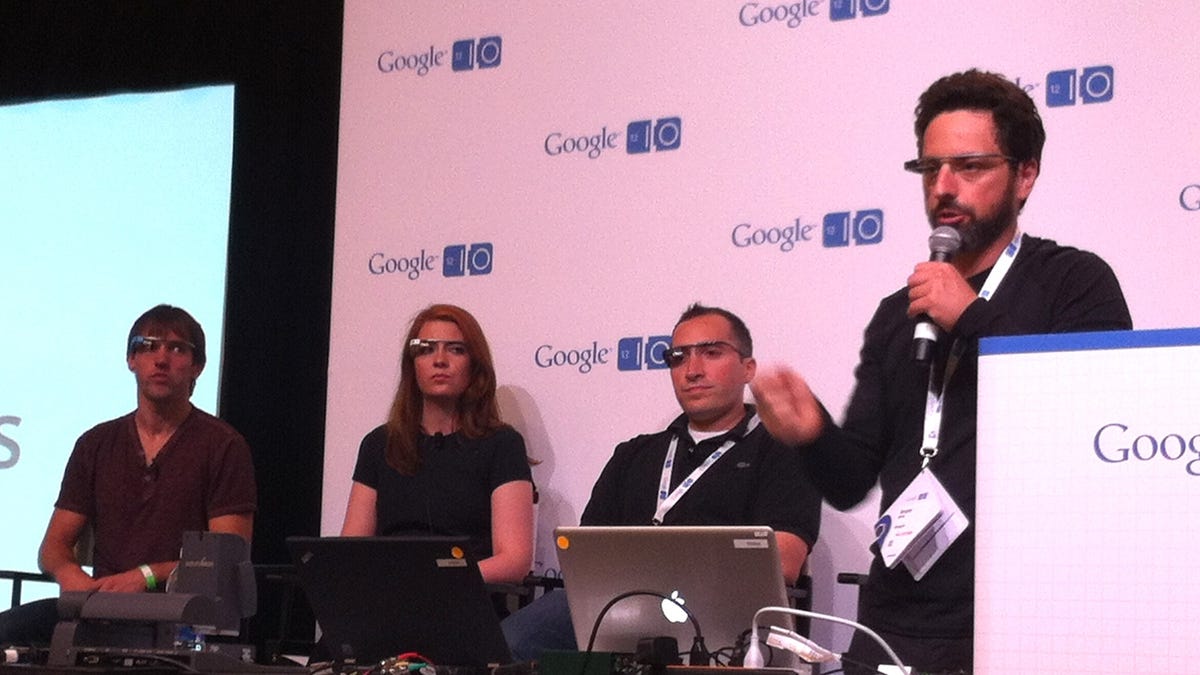Sergey Brin: Google glasses will set you free
At a small press conference at Google I/O, Sergey Brin explains how Google glasses will work for you.

In a press conference at Google I/O, Google's Sergey Brin said the idea of Google Glasses was to make users, "less a slave to your device." You won't have to reach into your pocket for simple notifications or to take a picture, he said.
"It's not for reading a book," he said, "although you could do that. It's for catching a text, or a picture.... I just took one of you now."
While a pair of Google Glasses will be tethered to a smartphone when out and about, Brin said that "at home or work you don't need it," implying that the headset could also work as an accessory on a WiFi network.
Asked about the safety of using Google Glasses while driving, Brin said, "We actually have done a lot of work on that, with our self-driving cars." He thinks that the limited amount of data that the Glasses show is safe, and furthermore since the glasses project images that appear to the user to be optically far away, users won't have to refocus their eyes, as they do when shifting their gaze to a dashboard.
Google designer Isabelle Olsson said the classes are "designed to interact with the virtual world without distracting you from the real world... close to your senses, but not blocking." She also said they needed to be physically unobtrusive and comfortable. "If this is not ridiculousl light, it doesn't belong on your face." She said the current Google glasses weight less than many sunglasses.
Product manager Steve Lee said the goal was to get users answers so fast, when using glasses, "that you feel you know it." He said it will be a while before that aspiration becomes reality.
Brin said that the Explorer Edition for developers, announced today, is "not the consumer edition." When the product ships, he said, it will be at a "significantly lower cost," than the $1,500 developers' product. But it won't be a commodity product, he said, "hopefully not something ending in 99." The final price has not been set, "but we do view this as a premium thing. Our focus is the quality of the experience, more than making it as cheap as possible."
Brin said there would be two ways for developers to interact with the product when they get it. There will be a cloud-based API, which is "far along," he said. Brin added, "We're going to let you go crazy on the device. Flash it. We're going to take those experiences and develop the right APIs and extensibility." He also implied that Google would not license the hardware for sale with flashed or modified code, however.
There's no question that wearing Google glasses right now looks a bit on the nerdy side. But Steve Lee said, "In three or four years, we think that watching people hold a device in their hand will be awkward."

